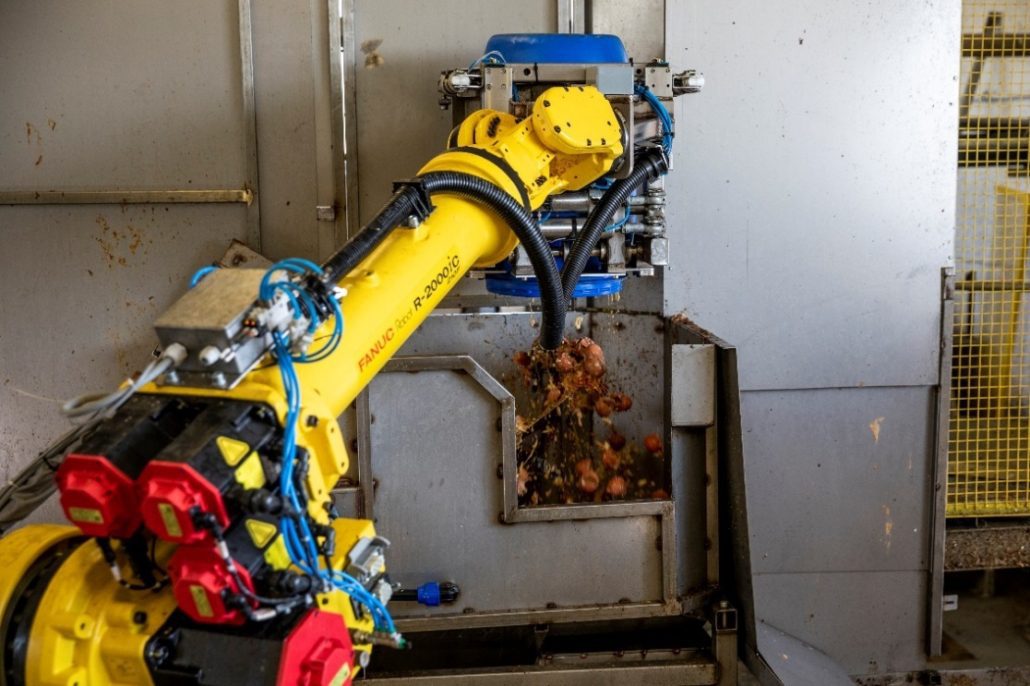“Our circular factory development project in Nyírbátor is special because the environmental footprint of our manufacturing activities is undeniable, so in addition to economic growth, we must also pay special attention to introducing a number of environmental innovations to reduce or even neutralise this footprint.”
Tamás Ács, Managing Director
Company name:
Unilever Hungary Ltd.
Implementation Year:
2021 – 2023
Focus Areas:
Circular economy, Climate protection, climate adaptation, Waste management, Alternative energy use and energy efficiency, Water use
Program Objective:
Between 2021 and 2023, the HUF 15 billion expansion of our Nyírbátor household chemical plant was carried out, with a strong focus on environmental innovation and circular industrial solutions, in addition to technological modernisation.
Our Nyírbátor unit is the Group’s most efficient household chemicals factory in Europe, covering 2/3 of the Eastern European region with products manufactured here. Circular solutions are inspired by the Unilever Group’s sustainability ambitions. This helped in the planning, implementation, internal reporting and impact measurement, as the ambition to go green was not unknown even in a small country like ours and thus had the support of the management.
Program Measures and Commitments:
The factory already has a number of green solutions in place, such as the fact that around 70% of the packaging material produced here is made from recycled plastic, that more than 30% of the waste water generated here is recycled in-house and the rest is fully filtered and cleaned in the factory before being released back into the environment, that 100% of the electricity from the grid will be generated from renewable energy sources from 2021 and that 75% of their entire manufacturing operations will be carbon neutral from 2024. However, the latest factory expansion and the construction of an automated high-bay warehouse have taken the practical implementation of the circular economy one step further. No waste was landfilled during demolition or construction, as it was either fully recycled on site or reused through expert partners. Unilever’s so-called “zero waste to landfill” strategy has inspired many innovative waste management solutions in the past, but the example of Nyírbátor is the one we are most proud of at the moment.
How sustainable is our solution? The inefficient treatment of industrial waste and its eventual landfilling is an outdated and polluting method, but there is an alternative. In addition, the increasingly stringent regulatory environment (both at EU and local level), rising transport costs, rising raw material prices are clear indicators of over-consumption of raw materials and the irresponsible and often wasteful use of the earth’s resources. Against this background, we believe that our solution is not only sustainable, but will also be the only viable option in the near future for all industrial players who wish to remain resilient in the face of various economic and environmental anomalies.
Program Impact and Results:
54 obsolete industrial silos and buildings were demolished at the outset due to the factory expansion, the remains of which were recycled in the following way: concrete rubble (13,000m3) was crushed on site and used for the foundations of the new hall building. The brick waste (6,000m3) was used by our partners for the stabilized soil of a solar park near Nyírbátor and for the stabilization of internal roads within the site. Iron waste (3000tonnes) was purchased from us for automotive purposes.
Related links:
Kategóriagyőztesként végeztünk a Greengage fenntarthatósági versenyen | Unilever
Hatalmas gyárbővítés Nyírbátorban a Domestosnál – Világgazdaság (vg.hu)
Keywords:
circular factory development

